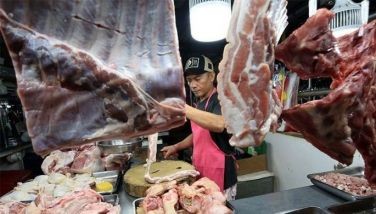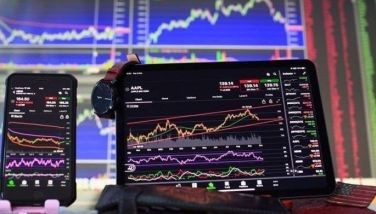Santos orders probe on use of Manila Mango brand by Mexico
May 21, 2005 | 12:00am
Trade and Industry Secretary Juan B. Santos has ordered the Bureau of Export Trade Promotion (BETP) and the trade department’s posts and offices abroad to investigate the reported usage by Mexico of the brand name Manila Mango for its mango produce.
Santos ordered the investigation in the light of a media report that Mexico is allegedly using the brand name Manila Mango for its produce.
Senator Ramon Magsaysay, chairman of the Senate Committee on Agriculture, who was quoted in report said, "the usage of the name is misleading as the mango produce actually grows in Veracruz, Mexico, but the name belongs to the Philippines."
"While Mexico acknowledges that seedlings of its Manila mangoes originally came from the Philippines during the colonial period by way of the Manila-Acapulco galleon trade, it must accord the Philippines due courtesy by awarding us the rightful use of the label," Magsaysay said in the report.
According to Magsaysay, the Manila Mango brand of Mexico already dominates the United States market.
"Since we could no longer use the name Manila mangoes, our own produce carry the label Philippine Super Mangoes in its re-entry to the US market in 2002," Magsaysay said.
Santos said that he has ordered an in-depth investigation on the matter before any further action is made.
"Once the probe concludes that we have sufficient evidence against Mexico, we will lodge a complaint against the Mexican firms involved," Santos said.
He added that "the Philippines will protect its product from such infringement on trademarks. Although these products are not patented, definitely we have a claim to what is ours," Santos said.
In the meantime, Santos urged the country’s small and medium mango growers and exporters to continue to improve the quality of their produce in order to get a firmer foothold of the growing export market for mangoes.
He said players in the fruit industry should respond to the intricacies and challenges posed by the global market for fruit products by taking into account the changing global consumption trend for fruits in positioning their mango exports.
"Our mangoes have a unique texture and sweetness that no other sources can claim. But our exporters should not be resigned to these qualities. They should continue to enhance the quality of our mango variety so as not to loose our market share," Santos said.
"We must also continue to promote the superb quality of our mangoes by consistently emphasizing in our sales pitches and export promotion activities, the big difference in the quality of our local fruit with that of the variety of other countries, in this case the Australian variety," he said.
Santos said the trade department has stepped up strategic marketing efforts to further promote Philippine mangoes in the international market.
Philippine mangoes made a breakthrough in the Italian market with the historic export of fresh carabao mangoes (also known as Manila Super Mango) to Italy in November 2003.
Aside from Italy, DTI also facilitated the re-entry of fresh Philippine mangoes in the US market as early as 2002.
From just $39.200 worth of exports in 2001, mango shipments ballooned to more than $606.411 in 2002.
The DTI is also supporting the local mango growers’ aim to further improve the quality of its mango produce.
The DTI is currently facilitating the grant by the US of a $10-million irradiation facility in the country, which is considered as a vital component in significantly increasing the export of Philippine mangoes and other tropical fruits and vegetables in the US.
"The facility, if approved by the US, will allow the agriculture sector to conduct its own irradiation treatment on the country’s fruits and vegetables, a phystosanitary measure required by the US in exporting commodities to their ports," Santos said.
The Philippines is the fifth largest world producer of mangoes with approximately 0.85 million metric tons of produce from about 130,000 hectares of agricultural land.
The country is also the sixth among the top exporters of mangoes to the world, sharing about nine per cent of the world market that is valued at around $34 million in 2000.
Exports of mangoes to the international market slightly increased by 0.22 per cent to $31.084 million from January to December 2004 from only $31.013 million in the same period in 2003, with Japan ($18.273 million), Hong Kong ($7.003 million), South Korea ($1.692 million), and China ($639,414) as top four markets.
The Philippines expects to corner about $70-million worth of mango exports in the international market, which is currently dominated by Mexico.
Santos ordered the investigation in the light of a media report that Mexico is allegedly using the brand name Manila Mango for its produce.
Senator Ramon Magsaysay, chairman of the Senate Committee on Agriculture, who was quoted in report said, "the usage of the name is misleading as the mango produce actually grows in Veracruz, Mexico, but the name belongs to the Philippines."
"While Mexico acknowledges that seedlings of its Manila mangoes originally came from the Philippines during the colonial period by way of the Manila-Acapulco galleon trade, it must accord the Philippines due courtesy by awarding us the rightful use of the label," Magsaysay said in the report.
According to Magsaysay, the Manila Mango brand of Mexico already dominates the United States market.
"Since we could no longer use the name Manila mangoes, our own produce carry the label Philippine Super Mangoes in its re-entry to the US market in 2002," Magsaysay said.
Santos said that he has ordered an in-depth investigation on the matter before any further action is made.
"Once the probe concludes that we have sufficient evidence against Mexico, we will lodge a complaint against the Mexican firms involved," Santos said.
He added that "the Philippines will protect its product from such infringement on trademarks. Although these products are not patented, definitely we have a claim to what is ours," Santos said.
In the meantime, Santos urged the country’s small and medium mango growers and exporters to continue to improve the quality of their produce in order to get a firmer foothold of the growing export market for mangoes.
He said players in the fruit industry should respond to the intricacies and challenges posed by the global market for fruit products by taking into account the changing global consumption trend for fruits in positioning their mango exports.
"Our mangoes have a unique texture and sweetness that no other sources can claim. But our exporters should not be resigned to these qualities. They should continue to enhance the quality of our mango variety so as not to loose our market share," Santos said.
"We must also continue to promote the superb quality of our mangoes by consistently emphasizing in our sales pitches and export promotion activities, the big difference in the quality of our local fruit with that of the variety of other countries, in this case the Australian variety," he said.
Santos said the trade department has stepped up strategic marketing efforts to further promote Philippine mangoes in the international market.
Philippine mangoes made a breakthrough in the Italian market with the historic export of fresh carabao mangoes (also known as Manila Super Mango) to Italy in November 2003.
Aside from Italy, DTI also facilitated the re-entry of fresh Philippine mangoes in the US market as early as 2002.
From just $39.200 worth of exports in 2001, mango shipments ballooned to more than $606.411 in 2002.
The DTI is also supporting the local mango growers’ aim to further improve the quality of its mango produce.
The DTI is currently facilitating the grant by the US of a $10-million irradiation facility in the country, which is considered as a vital component in significantly increasing the export of Philippine mangoes and other tropical fruits and vegetables in the US.
"The facility, if approved by the US, will allow the agriculture sector to conduct its own irradiation treatment on the country’s fruits and vegetables, a phystosanitary measure required by the US in exporting commodities to their ports," Santos said.
The Philippines is the fifth largest world producer of mangoes with approximately 0.85 million metric tons of produce from about 130,000 hectares of agricultural land.
The country is also the sixth among the top exporters of mangoes to the world, sharing about nine per cent of the world market that is valued at around $34 million in 2000.
Exports of mangoes to the international market slightly increased by 0.22 per cent to $31.084 million from January to December 2004 from only $31.013 million in the same period in 2003, with Japan ($18.273 million), Hong Kong ($7.003 million), South Korea ($1.692 million), and China ($639,414) as top four markets.
The Philippines expects to corner about $70-million worth of mango exports in the international market, which is currently dominated by Mexico.
BrandSpace Articles
<
>
- Latest
- Trending
Trending
Latest
Trending
Latest
Recommended































